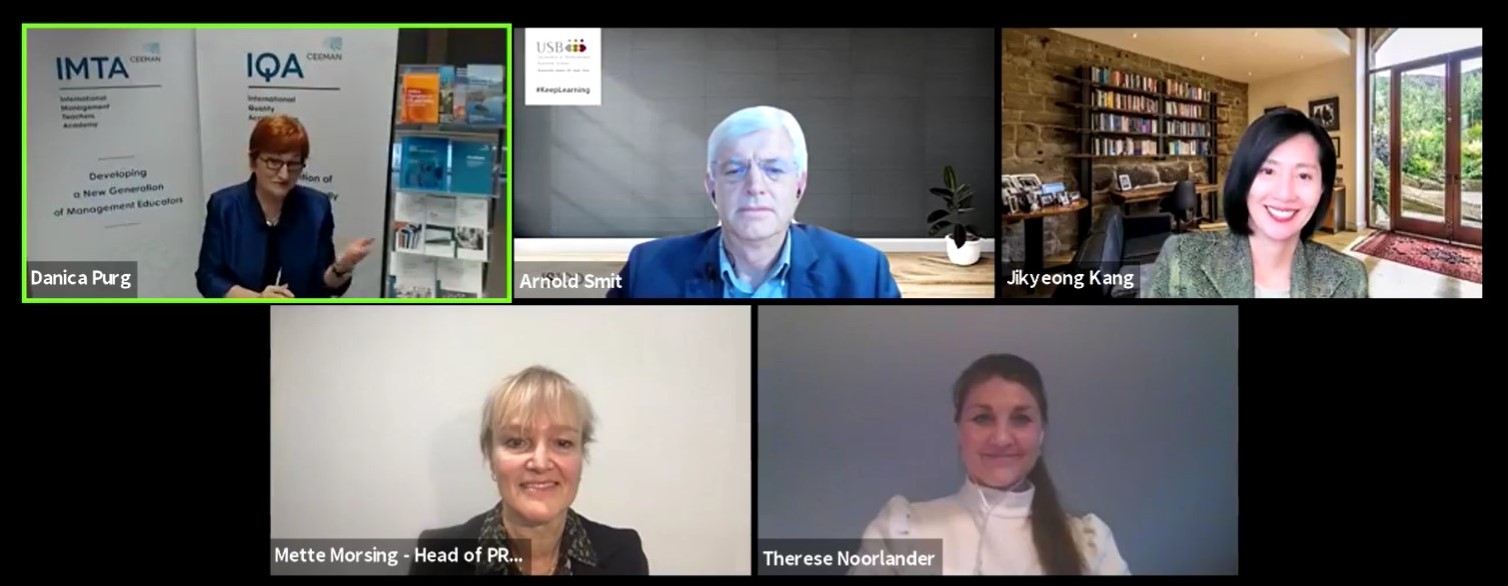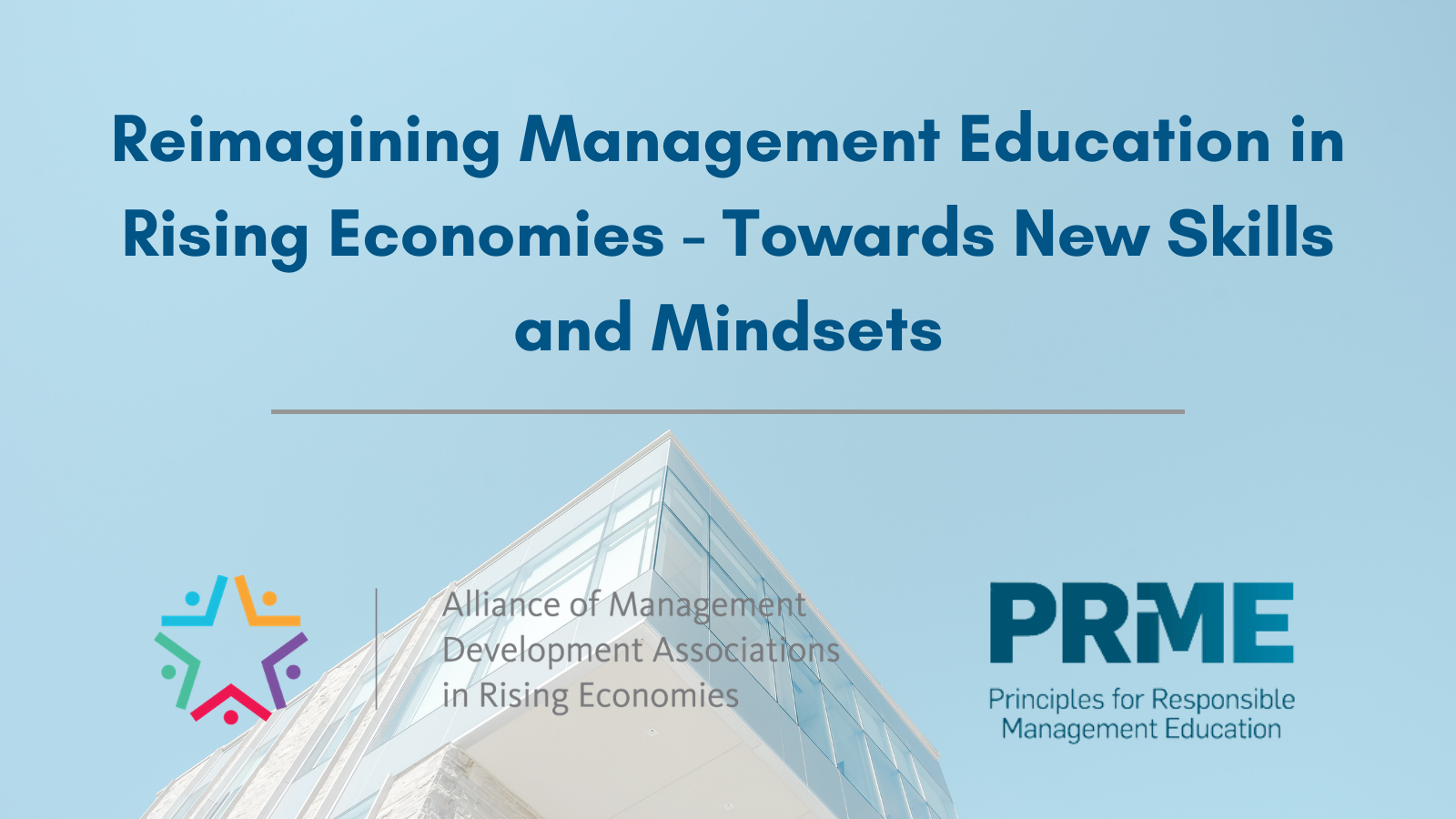Gathering more than 300 registrations from 71 countries all over the world, the session, co-moderated by CEEMAN President Danica Purg and Head of PRME Mette Morsing, discussed how business schools in rising economies can contribute to rebalancing sustainability and reimagining management education.
View the recording of the session on CEEMAN YouTube channel or CEEMAN Facebook page and feel free to share it with others. 
In her introduction, Danica Purg noted:
“It is important that business schools in rising economies become more self-confident and help contribute to change the meaning of the economic term “growth” by paying more attention to qualitative criteria than to quantitative ones, and to foster holistic understanding of the relevant elements, such as climate, health, sustainability, and social responsibility.”
Inputs by the panel speakers included the following topics:
- The future of management education and its role in creating a positive impact on society, Danica Purg, President of the Alliance of Management Development Associations in Rising Economies, President of CEEMAN, Slovenia
- The efforts of PRME in changing management education. What do business schools need to do differently and why does it not happen already? What is hindering us? Mette Morsing, Head of PRME, Denmark/USA
- What do we mean by reimagining management education and what are the necessary steps to make it happen (skills, competences, experiences)? Jikyeong Kang, PRME Board Member; President and Dean, Asian Institute of Management, Philippines
- How the inclusivity in thinking will help to solve the problems of the future? Therese Noorlander, Sustainability Director Europe, The Coca-Cola Company, Netherlands
- How can you work on changing the mindsets? Arnold Smit, Head: PGDip in Leadership Development, Associate Professor, Business in Society, University of Stellenbosch Business School, South Africa
In her concluding remarks, Mette Morsing summarized several key take-aways from the panel:
- Systems thinking should be more present in education – through holistic learning and partnerships (such as the Alliance)
- The call upon all disciplines (marketing, operations, finance, etc – not just business ethics) to integrate sustainability issues in curriculum
- Innovation – students need to be able to meet the world and think anew, we cannot rely on previous business models and way of thinking anymore
- Inclusivity – social, racial, economic - is very important for driving good business
- Accessibility of education is crucial as in many countries (especially in rising economies), business education is still reserved for the elite
- Leading by example – as leaders in a classroom and as business schools, we need to show by our own actions what it means to be responsible
- Convening space – business schools have the authority and capacity to bring together and across different social levels and stakeholders, being a neutral ground for dialogue and collaboration and encouraging creative new solutions
- Sustainability on executive board level – in many corporations as well as in business schools, sustainable development is not yet on the same level as other key priorities for executive boards
- Technology – both students and educators should be more tech-savvy, understanding how technology works, its risks and opportunities, and being critical readers of information on a daily basis

The Alliance of Management Development Associations in Rising Economies was established with the aim to support the management schools from rising economies – which share similar values, challenges, and often have great innovative solutions to offer to the world, especially in the area of sustainability. Visit Alliance website http://managementdevelopmentalliance.org/ or contact CEEMAN office to learn more.